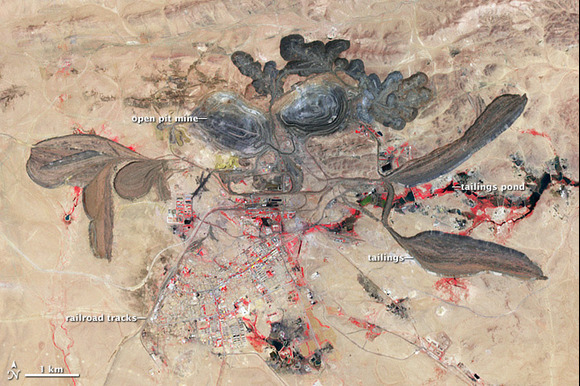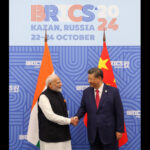The United States government is set to become the majority shareholder in the nation’s only operational rare earths mine, located in Mountain Pass, California, as part of a sweeping set of actions aimed at securing domestic supplies of critical minerals. This strategic move is designed to safeguard US technological and defense industries from excessive reliance on Chinese imports.
Rare earth elements are indispensable to a wide range of modern technologies, including electric vehicles, wind turbines, smartphones, and medical devices like MRI scanners. Neodymium and praseodymium — two of the most vital among the 17 classified rare earth elements — are especially in demand due to their critical use in manufacturing permanent magnets essential for electric motors and high-tech equipment.
The initiative comes amid rising concerns that China, which controls approximately 90% of global rare earth refining capacity and 70% of mining operations, has exploited its dominant position to distort global markets. Beijing has long been accused of manipulating prices to drive foreign competitors out of business through subsidies and market flooding, resulting in the near collapse of non-Chinese operations.
In a landmark agreement with the US Department of Defense (DoD), MP Materials, the company that owns and operates the Mountain Pass mine, has secured a guaranteed minimum price of $110 per kilogram for its neodymium and praseodymium output over the next decade. This price floor is intended to ensure the financial viability of the mine and encourage long-term investment in the rare earths sector within the United States.
In addition to the pricing commitment, MP Materials has pledged to construct a new facility within the US to expand its refining capabilities and reduce the need to export raw materials for processing abroad. While the exact location has yet to be determined, the company stated the facility will cater to both defense contractors and commercial manufacturers, helping establish a secure domestic supply chain.
To fund this expansion, the Department of Defense will purchase $400 million worth of newly issued MP Materials shares, thereby becoming the company’s largest shareholder. The investment is a significant step in reshaping the strategic resources landscape and marks a pivotal effort by the Trump administration to reduce foreign dependency in key supply chains.
“This initiative marks a decisive action by the Trump administration to accelerate American supply chain independence,” said James Litinsky, founder and chief executive of MP Materials.
Previously, Shenghe Resources — a Chinese firm partly owned by the Chinese government — was one of the major shareholders in MP Materials and its sole customer. For years, the mine’s output was shipped to China for refining, inadvertently reinforcing Beijing’s control over the global rare earths industry. However, earlier this year, MP Materials announced it would cease these shipments due to escalating trade tensions and unsustainable tariffs.
The shift came after China imposed retaliatory tariffs of 125% on US goods in response to the Trump administration’s 145% duties on Chinese imports. The imposition of these levies rendered the continued export of rare earths to China commercially impractical and inconsistent with US national security priorities, according to MP Materials.
Rare earths have emerged as a critical battleground in the deteriorating US-China trade relationship, particularly since President Donald Trump’s return to office. The intensifying tariff war led China to implement a new export licensing regime, significantly restricting the flow of rare earth materials to US-based manufacturers.
Although the two nations have recently engaged in trade negotiations — including high-level talks held in London and Geneva — Washington has expressed dissatisfaction with Beijing’s pace of implementation regarding rare earth export commitments. One proposed resolution involved the US lifting certain export restrictions in exchange for greater Chinese cooperation in rare earth access, but progress has reportedly been slow.
As the geopolitical competition continues, American policymakers increasingly view domestic production as the most reliable path to securing long-term access to rare earths. The Mountain Pass investment is widely seen as a cornerstone of this strategy, aligning with President Trump’s broader economic vision centered on revitalizing American manufacturing and reducing dependency on adversarial powers.
Europe, too, has voiced frustration over China’s stranglehold on the rare earths market. The European Parliament recently passed a resolution condemning China’s export controls as “unjustified” and “intended to be coercive.” The resolution called on the European Commission to accelerate the rollout of the Critical Raw Materials Act, which became law last year with the goal of decreasing Europe’s reliance on foreign sources of strategic minerals.
During a visit to Germany last week, China’s foreign minister sought to downplay Western criticism. He defended Beijing’s export controls as “common practice” and asserted that it is China’s “sovereign right” to regulate the trade of goods with both commercial and military applications.
As competition intensifies over the resources critical to the future of clean energy, defense technologies, and digital infrastructure, the US government’s decisive move to invest in Mountain Pass represents a major shift in its approach to resource security — one with far-reaching implications for global trade and geopolitics.






